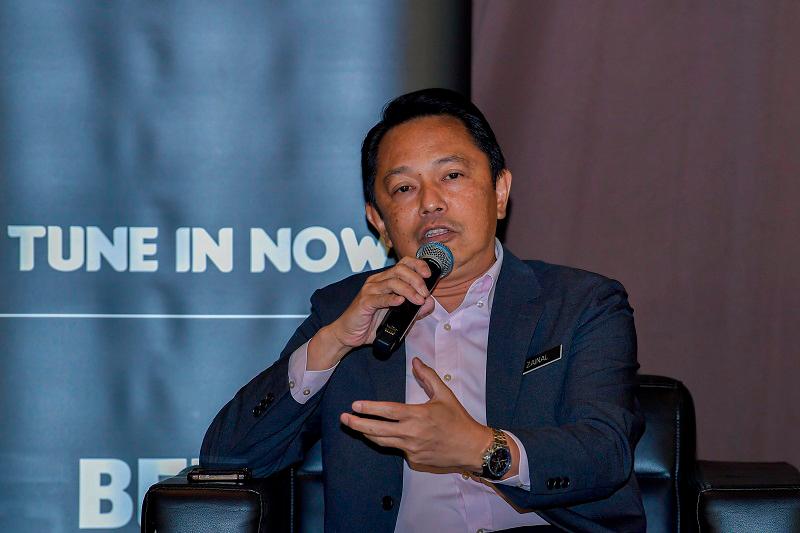KUALA LUMPUR: The Ministry of Education (MOE) is taking proactive steps in overcoming emerging issues related to the national education ecosystem to accelerate the achievement of the aspirations of the Malaysia Education Development Plan (PPPM) 2013-2025.
Education deputy director-general (School Operations Sector) Zainal Abas said that, as such, the six task forces set up under the education reform would drive the agenda of national education empowerment.
“We know that the country and the whole world was hit by COVID-19 and, because of that, a disruptive element occurred to the education system, not only in Malaysia but globally.
“So, to ensure the PPPM 2013-2025 progresses without being affected by this issue, we have established six task forces to focus on curriculum, in addition to empowering the fields of digital science, technology, engineering and mathematics (STEM); Technical and Vocational Education and Training; pre-school; and the initiatives to Empower the Malay Language and Strengthen the English Language,” he said.
He told reporters this after participating as a panellist in the Business Finance Malaysia (BFM) CEO Forum on Malaysia’s Education Reform recently.
Elaborating on the key focus outlined by the MOE, Zainal said the proactive steps taken were not only to activate the PPPM but also to look at the current needs of the existing education ecosystem.
“Currently, if we mention the 60:40 policy in the STEM field, we are at the 50.83 per cent level on average, so our continuous effort is to encourage more children to be involved in the field of STEM by holding various programmes.
“One of the programmes jointly implemented with Yayasan Petronas, namely the ‘Program Duta Guru’, helps to enhance the level of competency among teachers in the STEM field as well as diversify classroom teaching methods with hands-on activities that can attract pupils to follow STEM-based programmes,” he said.
As for the digital field, Zainal said the ministry’s new Digital Education Policy (DPD) would be spearheaded by the task force that has been established, thus, ensuring it reaches the school level and is accepted and used by teachers.
“Over RM40 million was invested last year to build a digital hub at the Teachers’ Activity Centre, which also aims to empower the digital field and raise the level of competency among teachers as well as achieve the goals of the DPD.
“This effort is also to provide space for pupils to use digital learning methods and allow teachers to use such facilities to increase their knowledge,” he said.
Zainal also said that the MOE had implemented a Year One Intervention Programme to tackle the issue of Year One students lacking the essential 3M skills of reading, writing and counting.
“Based on early detection screening on literacy and numeracy that we implemented to evaluate the pupils’ level of mastery, it was found that some of the pupils who lacked a minimum understanding of these fundamental skills were those who did not attend pre-school.
“So, through these task forces, we allow pre-schools to be opened not only in primary schools but also in secondary schools, provided there is space, we can deploy teachers there and there is an application or need... we also opened them at Teacher Training Institutes (IPG) and nearly all 27 IPGs have pre-schools,” he said.
He said it was the MOE’s goal to ensure the curriculum provided at pre-schools is standardised so that children can achieve the desired level of mastery, in addition to providing access to early childhood education so that the quality of pupils entering Year One will be of the required standards.
Zainal also said that to ensure more pupils take up the TVET field, engagement sessions with the industry would be intensified to make sure what they learn meets the needs of the industry.
“The TVET-related task force, meanwhile, will gear more towards encouraging more pupils to venture into the TVET field... in this matter, the minister had also gone down to the ground last month to meet the industry to understand how the education system in Malaysia can meet the future needs of the industry,” he said.
Zainal said the engagement programme held with the stakeholders, such as the one organised by BFM, was crucial to ensuring the objectives to be achieved between the ministry and stakeholders can be coordinated to jointly overcome any shortcomings.
“The programme organised by BFM aims to explain the initiatives that we are implementing... if we look at the participants of this programme, besides online, they are mostly stakeholders in ministries and private bodies who are carrying out these educational programmes.
“We used this opportunity to explain the reform being implemented by the MOE towards achieving the PPM objectives and, more than that, to produce a society that is competitive at the international level as is the aspiration of the National Philosophy of Malaysian Education (NPME).









